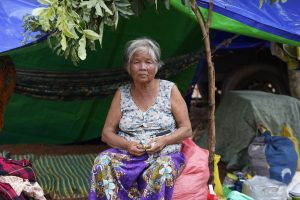As an outsider to a conflict, it’s always difficult when the pressure from warring states is tugging away with righteous claims of being wronged. Both sides will blame the other, an easy option when justification is required for needless death and destruction.
The latest Thai-Cambodian border conflict is no different. But when Bangkok continues to hold 18 Cambodian soldiers as prisoners of war, and starts ring-fencing Cambodian homes with barbed wire more than two weeks after a five-day conflict ended, then sympathies shift.
Evidence mounting out of the Cambodian border province of Banteay Meanchey is compelling. Barbed wire, nets, barricades, and car tires have been used to fence off disputed areas, including homes where ordinary Cambodians live.
It was also telling when Thai soldiers ceased the step-by-step encroachment and withdrew as foreign military observers began arriving as part of monitoring teams dispatched under the July 28 ceasefire agreement.
Such maneuverings also parallel the military ambitions of Lt Gen. Boonsin Padklang, the head of Thailand’s Second Army Region, who has vowed to recapture Prasat Ta Kwai (Prasat Ta Krabei in Khmer), one of three Angkorian temples at the center of the current dispute.
The conflict has thrust Boonsin from obscurity onto the Thai national stage with his tough talk and unilateral actions, which include the closure of another temple, Ta Moan Thom, while its fate is being considered.
Boonsin is expected to retire from the military at the end of September and he has not ruled out a political career. Suspended Prime Minister Paetongtarn Shinawatra had already described him as an “opponent” in her now infamously leaked private phone conversation with Hun Sen.
As Hun Sen, a former Cambodian prime minister who transferred power to his son Hun Manet two years ago, made clear, the decisions of politicians in Thailand seem to be dictated by their generals in the field, and over recent decades, the latter have built an intense dislike of the Shinawatra family dynasty.
Paetongtarn’s father Thaksin and her aunt Yingluck were both ousted by military coups, in 2006 and 2014, and she may well have been next had it not been for the support of army chief, Gen. Pana Klaewplaudthuk, who offered public guarantees that democracy would be respected.
But the clout of the Thai military does make it harder on the Cambodians when seeking a diplomatic and political solution to a conflict rooted in French colonial maps, drawn up about 120 years ago.
Thai military bullying at home might also explain why the Cambodian POWs have not been released, more so given that their capture, by most accounts, occurred while shaking hands with their Thai counterparts after a truce was announced.
That should be a simple order to be issued by the acting prime minister, Phumtham Wechayachai, who has been keen to please Boonsin’s command, offering the Second Army Area all the required funding needed for essential military operations.
That came after the Second Army Area called for public donations on its Facebook page, including an odd request for razor wire to reinforce the border against Cambodian incursions.
“I have told the commanders-in-chief of the three armed forces that if their units lack anything, they must inform the government, and it will be provided from the central budget,” Phumtham said.
As for the 18 POWs, increasingly they seem to be held hostage despite visits by the International Committee of the Red Cross amid Thai accusations that Cambodia had breached the ceasefire by laying landmines, a charge that Phnom Penh robustly denied.
Maj. Gen. Winthai Suwaree, spokesman for the Royal Thai Army, even suggested “Cambodia might not fully understand international protocols,” and in response to demands for the release of the Khmer soldiers, he deflected.
“We urge Cambodia to fully respect the ceasefire agreement and adhere to all 13 points, and to strictly abide by international legal principles. Cambodia has repeatedly violated these agreements in the past,” he said.
Combatants on both sides of any conflict want to be seen as the good guys, not the bad guys, but in regards to the handling of Cambodian POWs and further land encroachment along the border, the Thais might want to think again, if they are to maintain what goodwill they may have left.

































